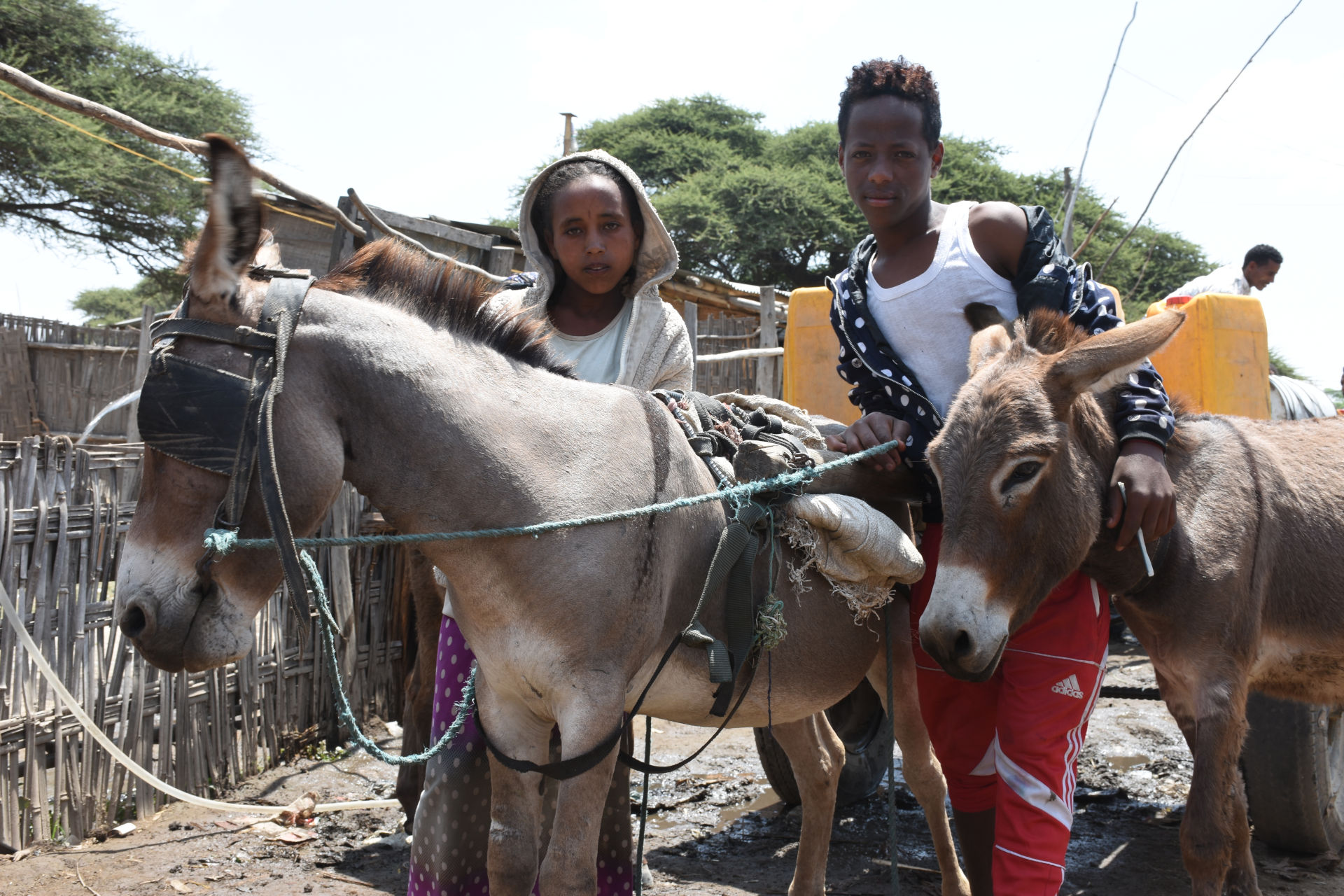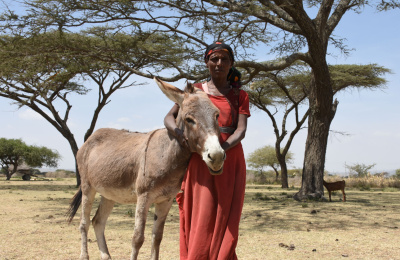Every day in the village of Bulbulla in Ethiopia, 10-year-old Margartu is responsible for collecting water supplies for her whole family – a task which is impossible without the help of their donkeys.
Margartu and her older brother Romia have big responsibilities on their shoulders. The children collect water supplies every day to sustain not only their family, but other households within their community too. Thankfully, they enlist the help of their three much-loved donkeys to complete this otherwise impossible task.
Donkeys lend a helping hand
Margartu and Romia go to school in the morning, and once lessons are finished they collect their donkeys from home and start the long journey with the cart to the nearest water point.
When they reach their destination, the siblings and other local children begin to fill up the large yellow panniers on the back of the cart with fresh water. The panniers are bulky and heavy when full, and are difficult for the children to lift, let alone carry. A donkey and cart can collect up 20 panniers of water in one journey. Without donkeys to help them, it would be impossible for the children to fetch an adequate amount of water.



Margartu’s family do not have a water point in their village, so the journey she makes with Romia and the donkeys is critical to fulfil their daily needs. The family use the water themselves, as do three other households, and any surplus water can be sold for 40cents per pannier.
Donkeys enable community savings scheme
Not only do the donkeys enable the family to earn enough money to live, but the income they generate allows them to take part in a community savings scheme called Iquib.
Iquib members contribute a regular fixed amount, and the Iquib ‘pot’ is then given in rotation to individual participants each collection time. Iquib offers a way to save money, and also has many social and communal benefits too, encouraging people to come together for celebrations and to help each other.
Bonds between children and donkeys last a lifetime
Margartu and Romia have respect for their donkeys and help with their daily care at home. They appreciate the work the donkeys do for their family, and know that they need them.
When asked if they think the donkeys need them, Romia answered: “Not necessarily” – but his friends were quick to shout out and correct him, saying how the donkeys really do need him, too.
“I feel lots of affection towards the donkey,” adds Margartu. “We will keep her forever, and even when she is old I won’t load her anymore, but I’ll still look after her”.
Once a donkey is too old and weak to work, it is common for Ethiopian households to keep them amongst their other livestock and continue to look after them. Children like Margartu and Romia grow up understanding that the right thing to do is to continue to give back the same care the donkeys provided for them.



